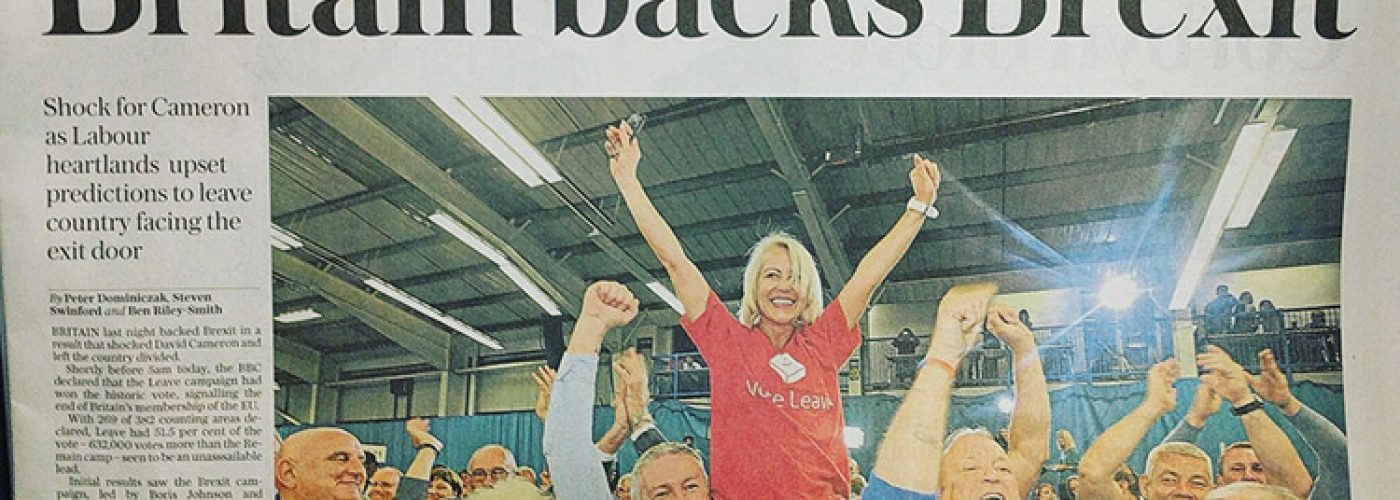30 July 2016 – by Alexander Peace
An interesting statistic emerged last month. There are 3m EU migrants living in the UK, and about 1m UK citizens living in the EU.

It does not take a genius to work out that – in an admittedly catastrophic and worst-case scenario – this could mean 2m fewer people in the UK.
With the national housing shortage somewhere between 1m and 2m homes, could that mean an almost immediate solution to the housing crisis?
While no one expects the government to boot out 2m EU citizens, could less immigration ease the pressure on housing? And what effect would it have on house prices?
“In the purest sense, if there are fewer people in a place, they need fewer houses to live in,” says Johnny Morris, director of research at Countrywide.
“But the reality of our economy – particularly in London – and the interplay with sales make it a lot more complicated than that.”
Susan Emmett, residential research director at Savills, agrees. “There are so many factors underpinning the housing crisis, and population growth is just one of them”, she says. Savills’ latest Brexit research note says: “The housing crisis is a long-term structural issue which is not limited to population growth alone. Even with substantial falls in net migration, we will still require around 300,000 new homes a year.”
All the content from this weekís magazine, including this article, is available in the new app.
Long-term predictions released recently from the ONS say that a further 210,000 households will be created each year in the UK until 2039. With the current inherent undersupply, this broadly supports calls for 300,000 homes to be built each year for the foreseeable future.
The predictions were made before the referendum, and less EU migration could impact on household formation: about 53% of the UK’s population increase is through direct migration, rather than by birth rate.
However, according to James Donagh, research director at Barton Willmore, not to any meaningful degree. He says the projections for household formation are calculated off net migration of 180,000 people a year, not the 330,000 the UK has been seeing.
“There will be some impact [on migration],” he says, “because there are fewer opportunities and it’s harder to move, but we still have a long way to go to get to levels suggested by the projections.”
Despite restrictions to free movement, migration may not decrease. There may be a future points system to allow migration, but that would not necessarily deter people, because it is largely a function of economic success.
“In recent years, since 2010, the levels of net migration appear to have been sustained by pretty good job growth in the UK, compared to less favourable circumstances across Europe,” says Donagh.
If the UK continues to grow economically, it will attract migrants. Regardless of migration, economic growth also pushes up house prices.
Morris says that while the number of people living in an area has an impact on house prices, “it is potential wealth and credit that define how high prices can go”.
If the UK wants to keep growing economically, it needs more migration, to feed growth.
It is a triptych of factors, all interlinked, but with the economy the keystone.
If the UK does slip into recession, migration and house prices could drop. Emmett points out that the fall in sterling could lead to less migration, as it makes less financial sense to move here.
“But, if there is a slowdown in housing delivery, as a result of sentiment, this is only going to exacerbate the housing crisis,” she added.
But regardless of negotiations about free movement – with Home Office permanent secretary Mark Sedwill saying only those who have been in the UK for more than five years will have guaranteed residency – the consensus is migration will not have a significant impact on either housing supply, or house prices.
“None of this is good news for the economy, but in terms of housing growth and demographics, population growth is just one aspect,” says Emmett.
“I do not see a reduction in the demand pressure,” says Donagh. “There are significant issues with supply, and population growth in recent years has been higher than we expect it to be.”
Worst-case scenario or not for immigration, the UK’s housing shortage is such that it will take more than a massive slowdown in the movement of people to dent demand.





